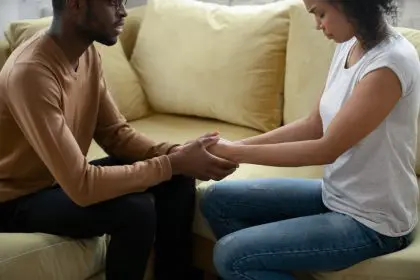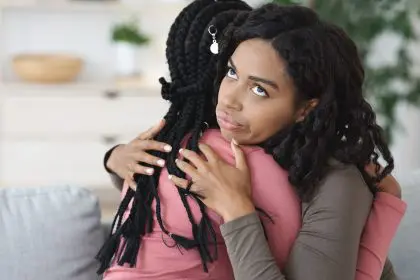Funerals are sad occasions, a time to mourn the passing of a loved one and celebrate their life. Grief is the primary emotion, yet amidst the tears and goodbyes, something unexpected can sometimes blossom: new relationships. This might seem counterintuitive, but there’s a powerful connection between shared loss and human connection.
Finding Solace in Shared Experience
The death of a loved one is a deeply personal experience, but grief is a universal emotion. Funerals bring together people who share a connection to the deceased, creating a sense of community and shared experience. This shared grief can be a powerful social glue, fostering a sense of understanding and camaraderie among mourners.
-
A Shoulder to Cry On: In the throes of deep grief, having someone who understands your pain can be a source of immense comfort. Funerals can connect you with others who know the deceased and are experiencing similar emotions. Sharing stories and reminiscing about the life of the person who passed away can provide a sense of solace and belonging during a difficult time.
-
Unexpected Bonds: Funerals can also foster connections between people who may not have known each other well. Sharing stories about the deceased can create a bridge, spark conversations, and potentially lead to new friendships. Perhaps you find yourself talking to someone who knew the deceased through a shared hobby or childhood memory. These unexpected connections can provide a sense of comfort and shared understanding.
Rekindling Old Flames
Life often takes people down different paths, and sometimes friendships or even romantic relationships fade due to busy schedules or geographic distance. A funeral can act as a catalyst, bringing people back together after a period of estrangement.
-
A Time for Reflection: A funeral’s somber nature can prompt reflection on life and relationships. It might lead people to reevaluate past connections and consider the importance of maintaining them. Seeing old friends or acquaintances at a funeral can spark memories and a renewed appreciation for the existing bonds.
-
A Chance to Reconnect: Funerals often bring together extended family and old friends. It might be the first time some people have seen each other in years. This can provide an opportunity to reconnect, apologize for past wrongs, and mend broken relationships. A past disagreement may become insignificant in the face of shared grief, opening the door for forgiveness and reconciliation.
Finding Strength Through Support
The emotional intensity of a funeral can make people more open and receptive to connection. Vulnerability and shared grief can create strong empathy and understanding, fostering a supportive environment.
-
Emotional Support During Difficult Times: Grief can be a lonely and isolating experience. A robust support system during this challenging time can be crucial for emotional well-being. Relationships formed or strengthened at funerals can provide a sense of belonging and a network of people to lean on during grieving. Sharing your grief with others who understand can help you feel less alone and provide a safe space to express your emotions.
-
Sharing the Burden of Grief: Grief is often overwhelming. Sharing stories and memories about the deceased with others who knew them can help to lighten the emotional burden. This shared experience can be a powerful tool for healing and moving forward. Talking about the positive aspects of the person’s life and their impact on those around them can be a source of comfort and help you begin to process your loss.
Respectful Connections
It’s important to understand that forming relationships at funerals isn’t meant to overshadow the reason for the gathering. It’s a natural byproduct of shared grief and the human need for connection during difficult times. However, it’s crucial to be respectful of the primary mourners and ensure that any interactions are appropriate for the occasion. Avoid loud conversations or laughter, and prioritize offering condolences and support to those closest to the deceased.
Finding Comfort in the Face of Loss
While funerals are undeniably sad occasions, they can also be a time for finding solace and support. The shared experience of grief can foster new connections or strengthen existing ones, providing a much-needed source of comfort and strength during a difficult time. Remember, grief is a journey, and the connections made at a funeral can give a support system to help you navigate the path toward healing.
This story was created using AI technology.

















